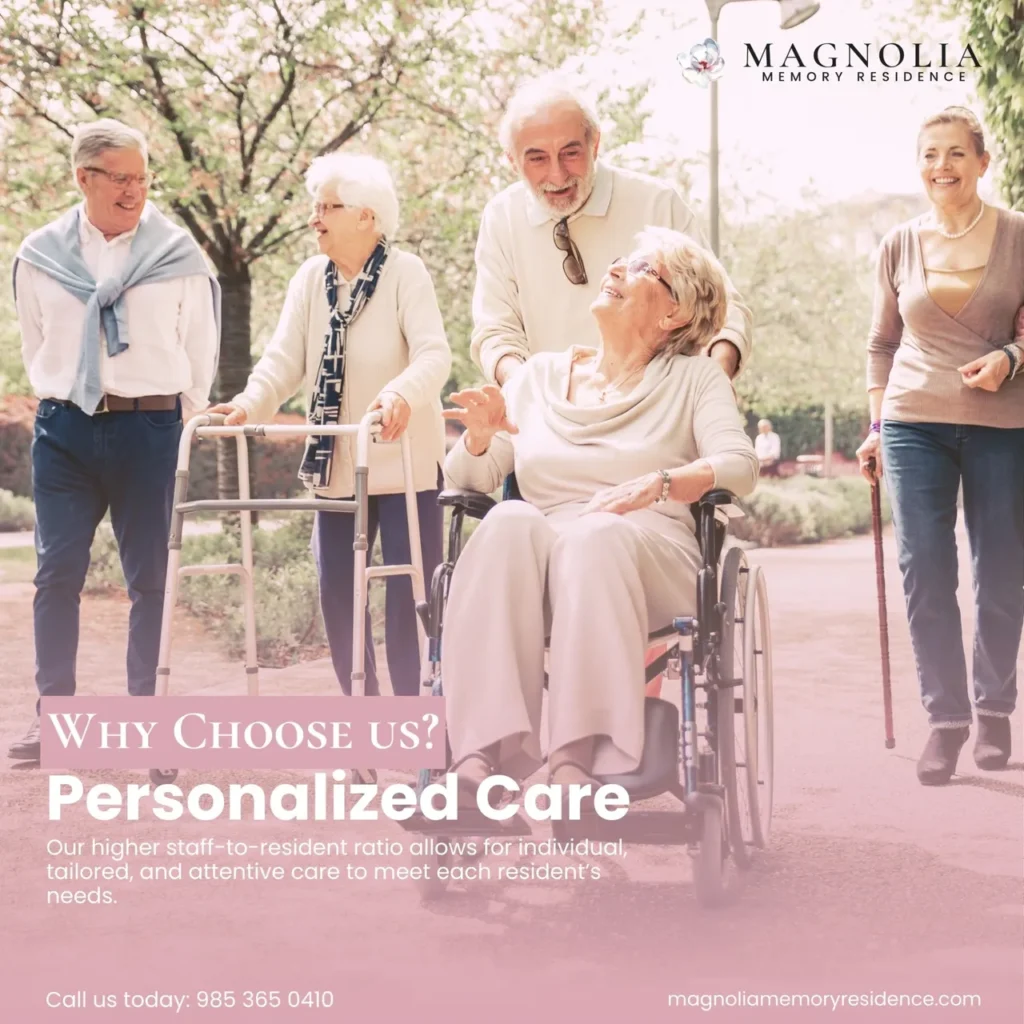How Memory Care Communities Support Families of Loved Ones with Dementia

Magnolia Memory Residence
Caring for a loved one with dementia is a journey marked by love, patience, and sacrifice—but it is also a path often filled with emotional and logistical challenges. Families who find themselves in the role of caregivers experience a unique blend of compassion, fatigue, and the constant worry of whether they are doing enough. At some point, many families consider transitioning their loved one to a memory care community. While this decision is deeply personal and can be emotionally complex, memory care communities offer vital support, not just for the individual with dementia, but for the family as a whole.
In this article, we’ll explore how memory care communities like Magnolia Memory Residence provide both emotional and practical relief for families, and why they often become trusted partners on this challenging journey.
Emotional Support: Peace of Mind for Families
1. Relief from Caregiver Stress and Burnout
Family caregivers often juggle multiple roles—parent, spouse, employee, and caregiver. The relentless demands of dementia care can lead to burnout, anxiety, depression, and even physical health issues. By transitioning their loved one into a memory care community, families can alleviate the intense daily pressures of hands-on caregiving, knowing that trained professionals are available around the clock to meet their loved one’s needs.
2. Emotional Reconnection
Without the constant strain of caregiving duties, families often find they can reconnect with their loved one on an emotional level. Instead of focusing on medication schedules, safety concerns, and daily tasks, families can visit their loved one simply as a spouse, child, or grandchild again—sharing moments of joy, reminiscence, and meaningful connection.
3. Professional Guidance and Support Groups
Many memory care communities, including Magnolia Memory Residence, offer support groups and educational workshops for families. These programs provide a safe space to share experiences, receive guidance from dementia care specialists, and learn coping strategies. Families often find comfort in knowing they are not alone and that others understand their journey.
Practical Support: A Team-Based Approach to Care
1. 24/7 Specialized Care
Dementia care requires specialized knowledge and a high level of attentiveness. Memory care communities have trained staff, including nurses and certified dementia care practitioners, who understand the complexities of cognitive disorders. Families gain peace of mind knowing their loved one is receiving expert care tailored to their unique cognitive and physical needs.
2. Safety and Security
Memory loss can increase the risk of accidents, wandering, and confusion, which can be difficult for families to manage at home. Memory care communities are specifically designed to provide a safe and secure environment with features like secured entrances/exits, monitored outdoor spaces, and fall-prevention technology. This ensures that residents are protected while still maintaining a sense of independence and dignity.
3. Personalized Care Plans
Every resident in a memory care community has a unique set of needs, preferences, and challenges. Professional care teams collaborate with families to create personalized care plans, ensuring that medical, emotional, and social needs are all addressed. These care plans evolve as the resident’s condition changes, offering families confidence that their loved one is receiving the appropriate level of support at all times.
4. Engaging Activities and Therapies
One of the key benefits of memory care is the structured programs designed to stimulate cognitive function and improve quality of life. Art therapy, music therapy, exercise classes, sensory activities, and social engagement opportunities are all carefully curated to slow cognitive decline and enhance mood. Families can rest assured knowing that their loved one is part of a vibrant and supportive community.
Bridging the Gap Between Family and Care Team
1. Open Communication
Effective communication is at the heart of a successful partnership between families and the memory care team. Most communities provide regular updates, progress reports, and open lines of communication with family members. This collaboration ensures that families are always informed about their loved one’s health, emotional well-being, and participation in community life.
2. Family Involvement Opportunities
Many communities encourage families to stay engaged by participating in special events, holiday celebrations, and activity days. These opportunities help families remain an integral part of their loved one’s life, even if they are no longer the primary caregiver.
3. End-of-Life Care and Grief Support
For families facing the later stages of dementia, memory care communities provide compassionate end-of-life support, including hospice partnerships, palliative care, and grief counseling. Knowing that their loved one will be cared for with dignity and compassion through every stage of their journey can offer immense comfort.
The Ripple Effect: A Positive Impact on Family Life
When a loved one transitions to memory care, the benefits often ripple outward to improve the overall family dynamic. Caregivers regain balance in their personal and professional lives, siblings reconnect without the tension of care disagreements, and grandchildren may experience less confusion and distress when visiting their loved one in a safe, welcoming space.
Ultimately, choosing a memory care community like Magnolia Memory Residence is not just about ensuring the best care for a loved one living with dementia; it’s about supporting the well-being of the entire family.
Conclusion
Making the decision to transition a loved one to memory care is never easy—but it can be a profound act of love. By entrusting professionals to meet the daily challenges of dementia, families open the door to healing, reconnection, and peace of mind. Memory care communities stand as a pillar of support, offering not just high-quality care to residents, but also invaluable emotional and practical benefits to the families who love them.